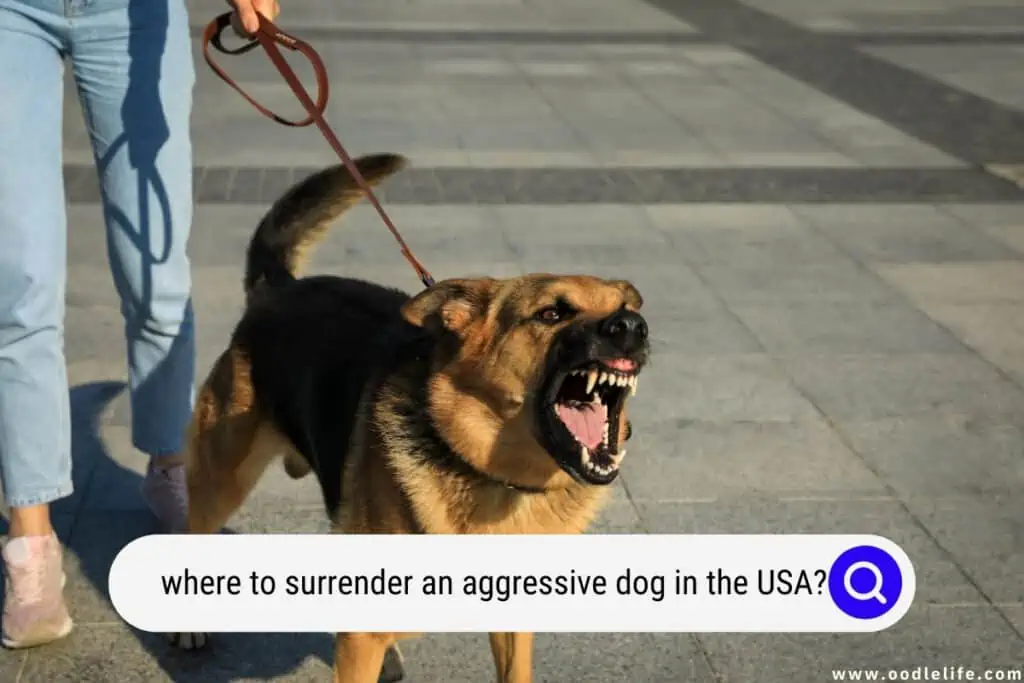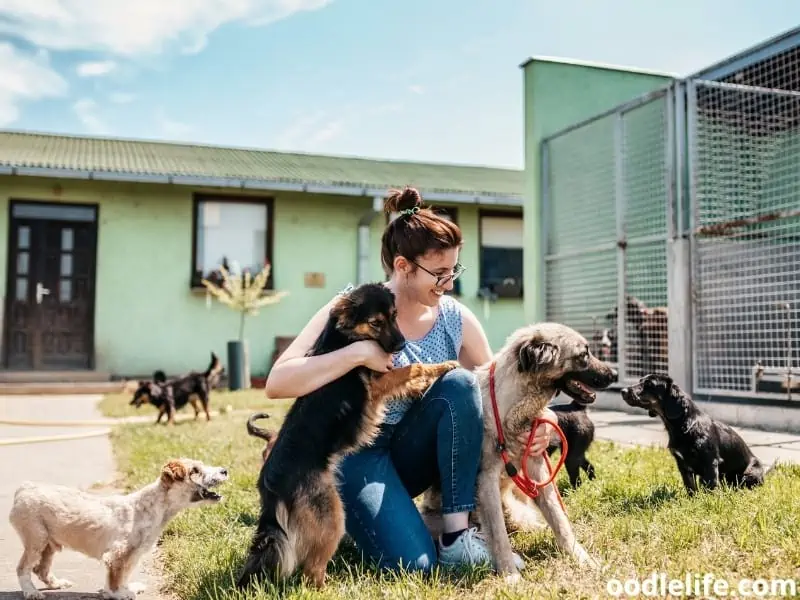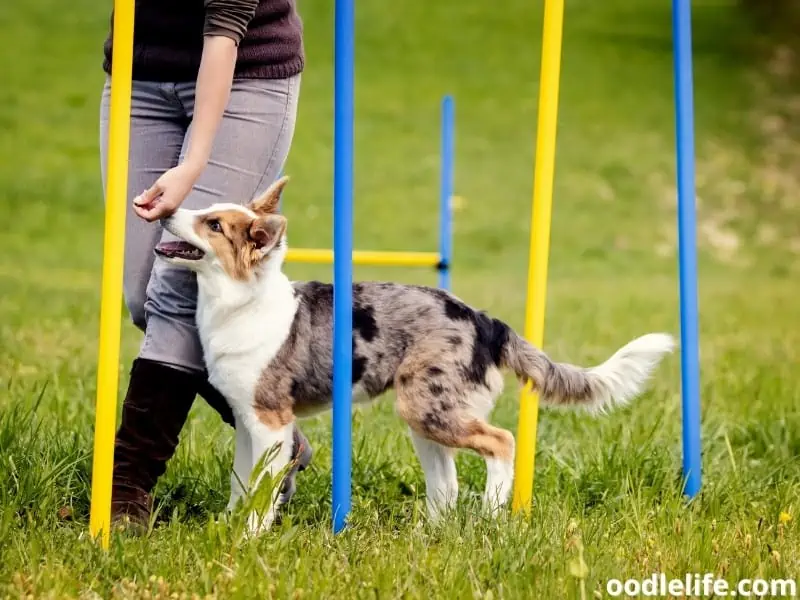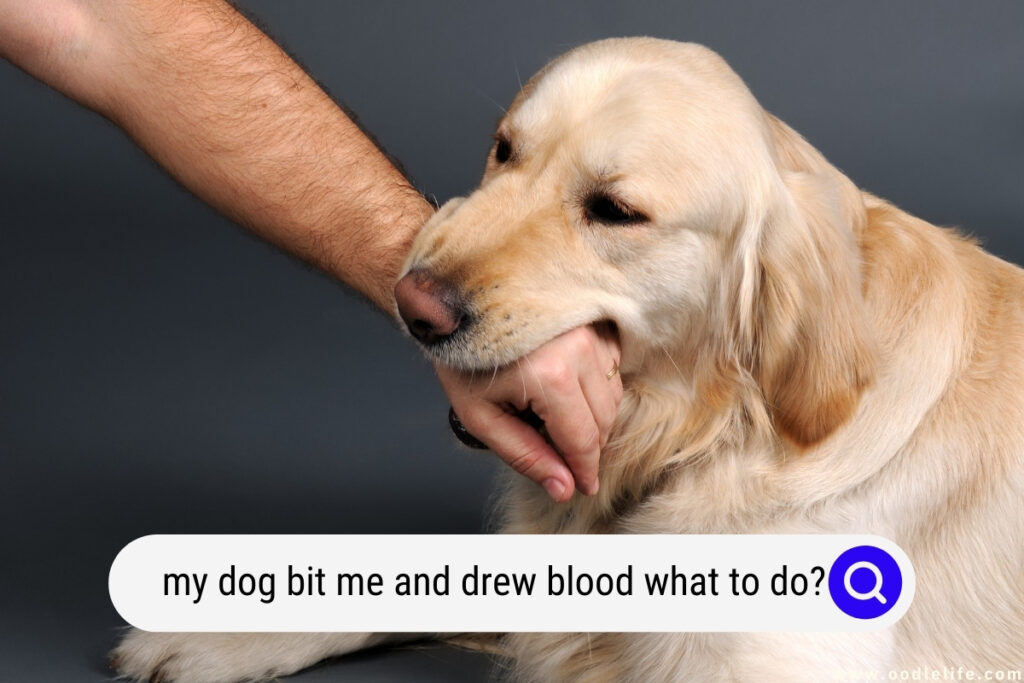Where to Surrender an Aggressive Dog? (USA)
It’s common knowledge among dog owners that dogs can develop aggressiveness for different reasons. Because most dogs are usually calm and submissive, owners are surprised when they suddenly become aggressive.
Suppose your dog is snarling, snapping, flashing teeth, or misbehaving. In that case, your family may be in a stressful situation due to the numerous trips to the veterinarian. There are instances when it’s best to give up a dog with a behavioral problem.

Deciding where to surrender your aggressive canine friend can be difficult, particularly if you want to do it in a manner that causes your dog the least amount of suffering. How do you safeguard yourself and others when selecting the most suitable solutions for your dog?
Here’s an in-depth look into these issues and guidance with deciding where to surrender an aggressive dog.
Should I Give Up My Aggressive Dog?
You may be unable to keep your dog if it has unresolved behavioral concerns, such as hostility toward other puppies, pets, people on the street, kids, or family members.
We will discuss your alternatives for rehoming dogs that are hostile toward other puppies or display low aggressiveness levels. Nevertheless, canines that attack people present a specific problem.
If someone surrenders their dog to a rescue house, they are placing the burden of their problem on the shoulders of shelter staff, caregivers, and, likely, new dog owners. You may also be held liable for any subsequent bites. You’d feel terrible about not doing more to help your dog improve if you find yourself in such a situation.
If you and your family aren’t already on board with rehoming your dog, there are other options to explore.

First, you will need to determine the severity of the issue. For instance, if your dog’s aggressiveness was a one-time occurrence, its odds are far better compared to a dog with a record of biting.
Additionally, is your dog prone to sudden outbursts of aggression? Or is its aggressiveness a consequence of being removed from its cage during a storm? A vet can help by prescribing diagnostics for specific medical disorders that can cause aggression, such as brain tumors, hypothyroidism, and chronic pain.
Furthermore, talk to a dog behaviorist to see if there are any alternatives to giving up your dog. Options might include behavior-change treatments and medication. Ensure to confirm their certifications, as this sector has many fraudsters.
Aggression is a complicated and potentially hazardous behavioral issue. Both the diagnosis and treatment of this condition can be difficult. Incorrect application of behavioral change techniques might have negative consequences.
Living with and providing medical care to an aggressive dog both present inherent dangers since even highly trained professionals may be victims of dog bites.
You may need to consider humanely confining your dog or euthanizing them. Nevertheless, you might be confused if the dog should live in confinement for the rest of its life.
If you settle for confinement, you will need the following things:
- Basket gag
- Head collar
- Strong leash
- Fence
Additionally, you will need to take your dog on routine exercises, preferably every day.
Alternatively, an aggressive dog is in a continuous state of anxiety and vigilance, and if it harms others, euthanizing it may be a humane act to protect others.

Where To Surrender Your Aggressive Dog?
If you’ve thought long and hard about where to surrender an aggressive dog, there are typically two options to consider.
1. No-Kill Shelters
Aggressive dogs handed over to a regular shelter may be euthanized immediately, and a rescue institution or group will not accept them. Therefore, securing a shelter or a caretaker is practically challenging.
It’s tough to get a shelter because they examine their dogs and resort to euthanasia when a dog’s aggressiveness endangers the lives of other dogs. In addition, they typically lack the resources essential for rehabilitative services, medicine, and sophisticated diagnostics.
Dogs suffering from aggressiveness will be welcome into a “no-kill” shelter, provided they don’t have a record of biting. Surrendering your dog may be difficult, so the shelter workers are trained to handle the surrender with compassion. Since no-kill shelters are local, you may have to conduct a thorough search for them.
If a shelter refuses to take your dog, make sure that you ask whether they know of any volunteer groups who might be willing to accept your dog. You can have a behaviorist certify your dog’s aggressiveness to be non-hazardous to help get your dog accepted into one of these groups.
Regarding fees, you might find a shelter that will accept your dog for free. However, most shelters charge a fee to take in a dog since they are non-profit institutions that have to take care of many dogs.

2. Rehoming
If a dog suffers from inter-dog aggression, it is prudent to find new homes. Some dogs do not get along with other dog breeds and may benefit from living in a single-dog home.
Likewise, dogs that cause chaos in the presence of cats or other animals benefit from a pet-free environment. But if your dog has shown signs of aggression toward people, this can raise some red flags. Ensure to inform the new dog owners of your dog’s behavioral issues.
Moreover, the inherently distressing scenario will exacerbate your dog’s aggressiveness and anxiety. Thus, it may unload such behavior in its new foster parents, who may decide to rehome it.
Do not conceal details about your dog’s aggressiveness since doing so will perpetuate the aggressive dog surrendering loop. The dog’s new owners will be unprepared to accommodate your dog’s habits and may try to find another home.

You can also try to locate a new home for your dog the old way. You can post posters and placards at a local pet store, a shelter, or social networking sites to spread the word. A well-designed adoption advertisement or a leaflet featuring the dog’s pictures and descriptions of the adoption process can go a long way.
To avoid feeling bad about rehoming your aggressive dog, concentrate on the main reason you made the decision. You have no reason to feel bad about what you did as long as you tried your best to mitigate a hazardous situation.
It would be best if you instead took satisfaction in the knowledge that you have made a decision that will ultimately benefit your dog.
Trying to run from rehoming remorse or repressing your emotions is not an appropriate response. If you conceal your sentiments for too long, you may end up making reckless actions, such as visiting the dog in the newly found home, which is dangerous for everyone, including the dog. Don’t try to avoid the feeling and expect it to fade over time.

Frequently Asked Questions About Aggressive Dogs
Dealing with an aggressive dog is stressful to many dog owners. Constant conflict with your dog frustrates you and leads to feelings of despair. Here are the most common questions other dog owners ask about aggressive dogs.
What do no-kill shelters do with aggressive dogs?
No-kill shelters adhere to no policy whatsoever. They may offer service dog groups where pups may get training as assistants for physically impaired dog lovers. However, if your dog is so vicious, rendering it impossible to put it in a new home securely, there is a better chance of being euthanized.

Is it possible to surrender a dog that bites?
Dogs with a record of biting are often returned to their owners or euthanized since no one is prepared to risk dog bites plus shelters have scarce resources. It’s advisable to notify the shelter that your four-legged companion has a bad history. No shelter will accept a dangerous pet with injurious tendencies.

Will veterinarians euthanize vicious dogs?
Veterinarians might euthanize vicious dogs if they have wounded other pets or persons. As noted earlier, the veterinarian may give medical testing to determine whether the dog’s aggressiveness results from medical conditions, in which case euthanasia is not an option.

Final Thoughts
Rehoming an aggressive dog is a difficult decision for any dog owner. It’s sensible to offer your dog a second opportunity and perhaps find a dog-lover to care for him, although it is unethical to unload a troublesome dog on someone else. It is also reprehensible to do so without informing the new owner of the issues.
However, some circumstances necessitate giving up one’s pet. Dogs are not just pets; they are family members. When they are away from their families, they feel and may exhibit depressive symptoms or behavioral problems.
Therefore, it is necessary to seek alternatives that lessen the detrimental effects on your dog’s psychological and physical health.